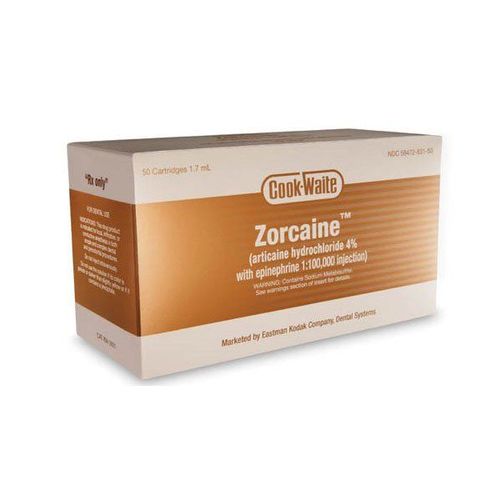This is an automatically translated article.
Sesame seed allergy can occur at any time, in people who are at high risk for food allergies or severe eczema. Currently, sesame seeds are ranked among the top foods that cause allergies and it can lead to serious health consequences. Therefore, learning and being prepared to prevent sesame allergy will help you significantly reduce the risk of disease.
1. Is sesame seed allergy dangerous to health?
Although it is one of the foods that are often used as the main ingredient for many different dishes, sesame seeds also have great potential for health risks, typically an allergy to sesame seeds.
According to research data, after the top 8 allergenic foods (including milk, eggs, nuts, peanuts, shellfish, wheat, soy and fish), sesame seeds come in at the top. 9th place.
Sesame allergy can cause dangerous symptoms to the patient's health, including headache, skin swelling, rash, difficulty breathing, loss of consciousness, gastrointestinal upset anxiety, anxiety, and even panic attacks. Even so, each person can still minimize the possibility of sesame allergy by avoiding contact with foods containing them.
2. What causes sesame seed allergy?
Sesame seeds are among the most common allergens. Causes of sesame seed allergy include:
Allergies due to Immunoglobulin E (IgE) antibodies, which occur within minutes of exposure to the allergenic food; Allergies are caused by other parts of the immune system in the body, but this case does not cause obvious symptoms for many days. Most allergies caused by IgE-mediated anaphylaxis are actually very severe. Even anaphylaxis due to sesame seed allergy can be fatal if not handled promptly.
Experts have discovered that the main agent (or allergen) in sesame seeds actually comes from a protein, called oleosin. In addition, sesame also contains many other proteins, some of which have not been specifically identified and there is a high possibility that these substances may be the "culprits" of allergies.

Dị ứng mè có thể do kháng thể Immunoglobulin E (IgE)
3. The risk of causing a sesame seed allergy
Although most cases of sesame allergy start in childhood, it can actually develop at any age. In general, people who are at high risk of developing a sesame seed allergy are mainly among those who have had previous food allergies or severe eczema.
Many argue that genetic factors also play an important role in the risk of sesame seed allergy. However, family history is not really a notable trigger. For example, if a grandmother or grandfather has a sesame seed allergy in your family, that doesn't mean you or your child will have the same.
4. What should you do when there is a risk of a sesame allergy?
If you are at high risk for a sesame allergy, avoid foods, such as hamburgers with seeds or salad dressings made with sesame. However, it is very difficult to completely avoid the possibility of exposure to this nut because many foods do not specify sesame as a major ingredient. Or in some products only sesame is listed as a seasoning or a natural flavoring.
In fact, sesame seeds can be added to many foods that are still widely consumed in the market today, such as cookies, ice cream, candy, pizza crust, margarine, noodles or soups . Even cosmetic products, including soaps, lip balms or lotions, can contain sesame seeds.
Depending on the severity, even a small amount of sesame seeds can be enough to cause an allergic reaction. Therefore, it is best to only eat foods that are known to be safe and do not contain allergenic sesame. Also, pay close attention and read food labels carefully, and immediately discard products that do not clearly list ingredients.

Mè là hạt gây dị ứng phổ biến nên bạn cần thận trọng khi sử dụng
5. Some advice for those who are sensitive to sesame
As with all food allergies, reading labels and learning about ingredients in processed foods is considered the best way to help prevent serious allergies.
Some tips that may be helpful for people who are sensitive to sesame seeds include:
Learn and choose foods carefully before eating: You should read nutrition labels for any food carefully. prepared foods, as well as spice blends. Sesame is sometimes listed with names like "benne", "sesamol", "gingelly" or "til". Use caution when using vegetable oils: Highly refined sesame oil is considered safe to use. However, you should avoid consuming cold pressed sesame oils. Be careful when enjoying food in different regions: Many cultures use sesame seeds regularly in food preparation. Some countries also do not have strict nutrition labeling laws to help identify ingredients in foods. Therefore, if you have a sesame allergy, you should be very careful when enjoying foods in other countries or cultures. Be aware of other allergens: Patients with sesame seed allergies should learn about the potential for cross-reactivity with other nuts, such as poppy seeds, tree nuts, and peanuts. It is not known at this time whether cross-reactivity presents a clinical hazard, so you should consult an allergist to assess your individual risk. Have an emergency backup plan: You need to carry epinephrine devices, such as Auvi-Q or EpiPen. Epinephrine works much faster and more sensitively than other allergy medications like Zyrtec or Benadryl, experts say. Recognizing the early signs of a sesame seed allergy : When you detect signs of a sesame allergy in your body such as itching, rash, nausea, vomiting, swelling, dizziness or difficulty breathing, you need to use it. use an epinephrine device or seek immediate medical attention. Think more openly and optimistically about allergies: You should hope for the best and prepare for the worst when an allergy occurs. In summary, food allergy in general and sesame seed allergy in particular can "attack" you at any time, so you should think positively and seek help from your loved ones. friends or doctors in emergencies.
Please dial HOTLINE for more information or register for an appointment HERE. Download MyVinmec app to make appointments faster and to manage your bookings easily.
Reference source: healthline.com













